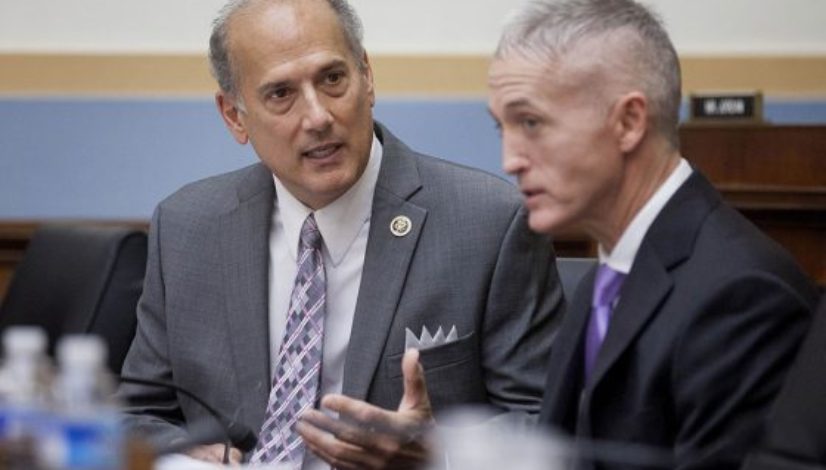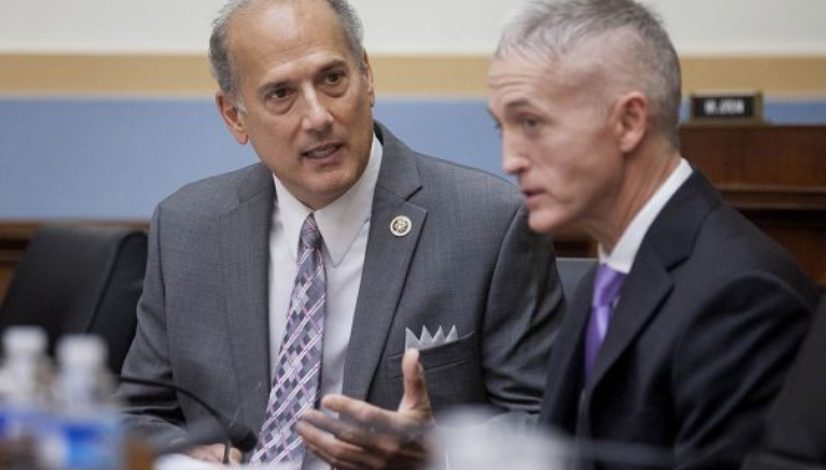Senator calls on Trump to withdraw Marino as drug czar pick in wake of revelations

Published: Oct 16, 2017, 11:46 am • Updated: Oct 16, 2017, 11:58 am
By Ed O’Keefe and Scott Higham and Lenny Bernstein, The Washington Post
WASHINGTON – Congressional Democrats on Monday reacted sharply to reports that President Donald Trump’s nominee to serve as the nation’s drug czar helped steer legislation that made it harder for the federal government to take some enforcement actions against giant drug companies.
One Democratic senator called on Trump to withdraw the nomination of Rep. Tom Marino, R-Pa., to lead the Office of National Drug Control Policy, a position requiring Senate confirmation. Another quickly unveiled legislation to undo the law that Marino championed and that passed Congress with little opposition.
In a statement, Sen. Joe Manchin III, D-W. Va., said he was “horrified” to read details of an investigation by The Washington Post and “60 Minutes” that described how a targeted lobbying effort helped weaken the Drug Enforcement Administration’s ability to go after drug distributors, even as opioid-related deaths continue to rise. He called on Trump to withdraw Marino’s nomination.
I asked @realDonaldTrump to withdraw Rep. Tom Marino’s nomination to lead the White House Office of National Drug Control Policy. pic.twitter.com/H5bn1z7m8d
— Senator Joe Manchin (@Sen_JoeManchin) October 16, 2017
“During the biggest public health crisis since HIV/AIDS, we need someone leading the White House Office of National Drug Control Policy who believes we must protect our people, not the pharmaceutical industry,” Manchin said in a statement.
Related stories
- Trump’s apparent drug czar pick has strong “no” vote record on marijuana, including CBD oil
- Is federal Drug Control Policy office on the chopping block in fed budget?
- Senate unanimously OKs Michael Botticelli to stay on as U.S. drug czar
In a separate letter to Trump, Manchin said that more than 700 West Virginians died of opioid overdoses last year. “No state in the nation has been harder hit than mine,” he wrote.
Sen. Claire McCaskill, D-Mo., also said Monday that she would be introducing legislation to repeal the Ensuring Patient Access and Effective Drug Enforcement Act of 2016. The law, she said, “has significantly affected the government’s ability to crack down on opioid distributors that are failing to meet their obligations and endangering our communities.”
McCaskill, as the top Democrat on the Homeland Security and Governmental Affairs Committee, has used her perch to probe opioid manufacturers and is pushing them for sales and marketing materials, studies of potential addictions and whether the firms are donating to third party advocacy groups that champion their work.
Manchin and McCaskill face reelection next year in rural states that Trump won last year. Despite their fresh concerns, neither opposed the legislation when it passed in the Senate last year by unanimous consent.
In April 2016, a handful of members of Congress, allied with the nation’s major drug distributors, prevailed upon the DEA and the Justice Department to agree to the more industry-friendly law, undermining efforts to stanch the flow of pain pills, according to the Post/”60 Minutes” probe. The DEA had opposed the effort for years.
The law was the crowning achievement of a multifaceted campaign by the drug industry to weaken aggressive DEA enforcement efforts against drug distribution companies that were supplying corrupt doctors and pharmacists who peddled narcotics to the black market. The industry worked behind the scenes with lobbyists and key members of Congress, pouring more than a million dollars into their election campaigns.
The chief advocate of the law that hobbled the DEA was Marino, who spent years trying to move it through Congress. It passed after Sen. Orrin Hatch, R-Utah, negotiated a final version with the DEA.
Besides the sponsors and co-sponsors of the bill, few lawmakers knew the true impact the law would have. The White House was equally unaware of the bill’s import when President Barack Obama signed it into law, according to interviews with former senior administration officials.
Top officials at the White House and the Justice Department have declined to discuss how the bill came to pass.
Michael Botticelli, who led the ONDCP at the time, said neither Justice nor the DEA objected to the bill, removing a major obstacle to the president’s approval.
“We deferred to DEA, as is common practice,” he said.
The bill also was reviewed by the White House Office of Management and Budget.
“Neither the DEA nor the Justice Department informed OMB about the policy change in the bill,” a former senior OMB official with knowledge of the issue said recently. The official spoke on the condition of anonymity because of the sensitivity of internal White House deliberations.
The DEA and Justice Department have denied or delayed more than a dozen requests filed by The Post and “60 Minutes” under the Freedom of Information Act for public records that might shed additional light on the matter. Some of those requests have been pending for nearly 18 months. The Post is now suing the Justice Department in federal court for some of those records.
Topics: big pharma, DEA, opioid epidemic, Tom Marino, Trump administration, u.s. drug czar, West Virginia, White House Office of National Drug Control Policy




